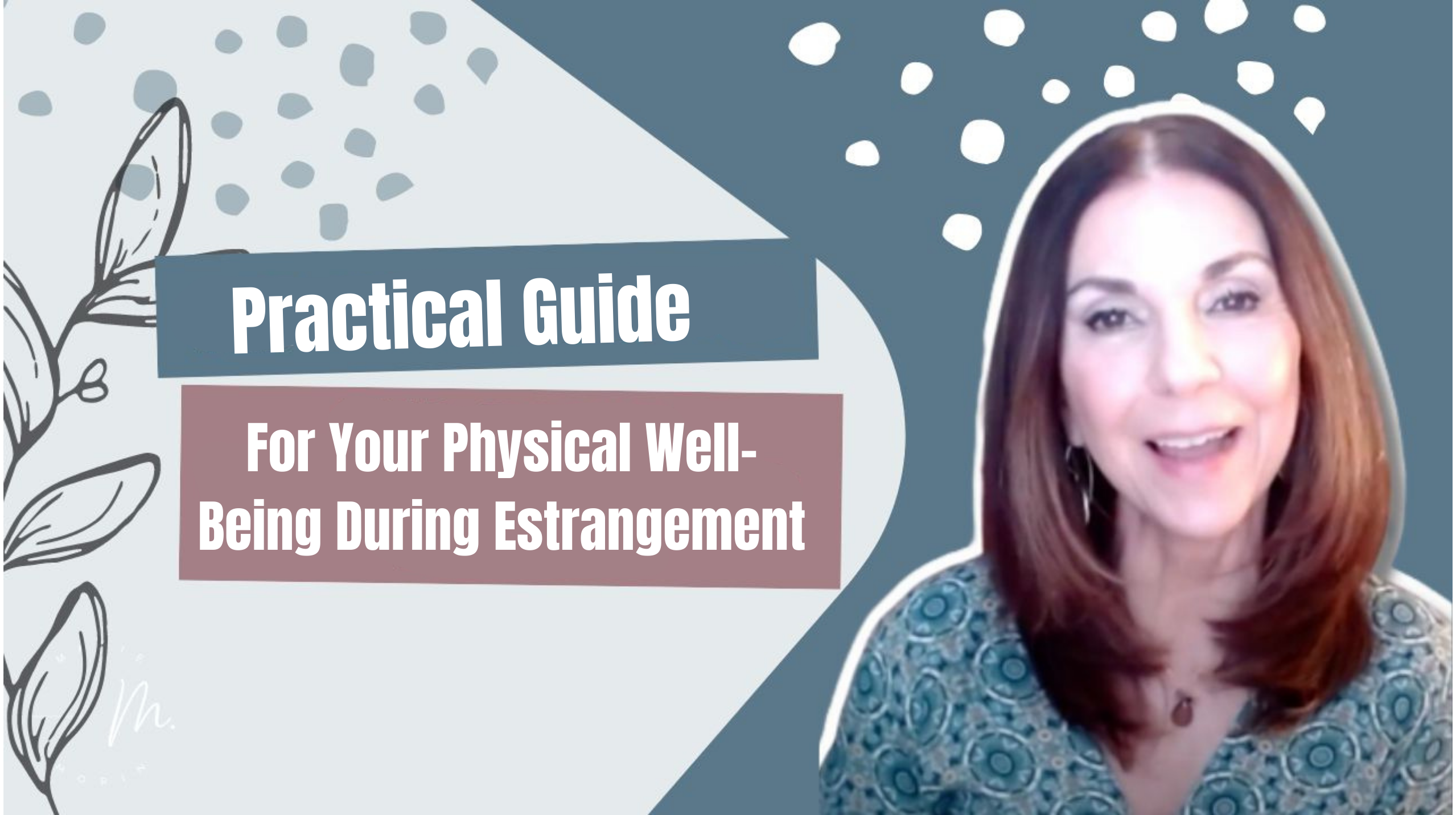Dealing with estrangement can profoundly impact your emotional health, but it’s crucial to remember that your physical well-being matters equally as much. In this blog post, we’ll explore practical steps to prioritize physical health while navigating this challenging time.
1. Prioritize Self-Care:
It’s easy to get lost in the emotional turmoil when dealing with estrangement. However, taking care of your physical health is essential for overall well-being. Here are some self-care practices to consider:
- Engage in relaxation techniques: Start your day with meditation and deep breathing exercises. Dedicate daily to these practices to calm your mind and center yourself.
- Dedicate time to activities that bring you joy: Create a list of activities that bring you good sensations and relaxation. Ensure you integrate these activities into your routine regularly to lift your spirits.
- Consider practicing yoga: Yoga is excellent for physical flexibility and mental relaxation. It can help you reconnect with your body and reduce stress.
2. Maintain a Balanced Diet:
The food you consume directly impacts your physical and emotional well-being. Here’s how you can maintain a balanced diet during estrangement:
- Consume various foods: Ensure your diet includes a wide range of fruits, vegetables, lean proteins, and whole grains. These foods provide essential nutrients for your body and mind.
- Avoid comfort eating: Emotional distress can lead to excessive comfort eating. Be mindful of your eating habits and avoid overindulging in unhealthy foods, which may lead to energy crashes and weight gain.
- Make nutrition a priority: Treat your meals as opportunities to nourish your body. Pay attention to what you eat, and choose foods that support your overall health.
3. Stay Hydrated:
Proper hydration is many times overlooked, but it plays a crucial role in your physical and cognitive well-being:
- Drink enough water throughout the day: Staying hydrated supports bodily functions and ensures cognitive clarity.
- Reduce sugary drinks: Cut back on sugary beverages, which can lead to energy spikes and crashes. Opt for water as your primary source of hydration.
4. Regular Exercise:
Physical activity is not only beneficial for your body but also for your mental health. Here’s how you can incorporate exercise into your routine:
- Engage in enjoyable activities: Choose physical activities that you genuinely enjoy, whether it’s walking, swimming, dancing, or anything else. Choosing activities you have fun doing will make it easier to stay consistent.
- Aim for 150 minutes of moderate activity per week: The recommended minimum amount of exercise is 150 minutes of moderate activity per week. Break it down into manageable sessions to fit your schedule.
- Harness the power of endorphins: Exercise releases endorphins, natural mood lifters. Regular physical activity can improve your mood and reduce stress.
5. Prioritize Sleep:
Quality sleep is essential for both your physical and emotional well-being:
- Aim for 7-9 hours of quality sleep each night: A well-rested body and mind are better equipped to handle the challenges of estrangement.
- Establish a bedtime routine: Create a calming routine that signals your body that it’s time to rest. You could include reading, gentle stretching, or a warm cup of herbal tea.
- Create a comfortable sleep environment: Ensure your sleeping environment is conducive to rest. Minimize distractions and make your bedroom a peaceful sanctuary.
6. Seek Professional Support:
Sometimes, dealing with estrangement can become overwhelming, and seeking professional help is a crucial step in prioritizing your well-being:
- Consider therapy: A family therapist or an estrangement coach can provide valuable guidance and coping strategies to manage your emotional and mental well-being.
- Access a safe space: Therapy sessions and specialist estrangement coaching offer a safe and non-judgmental space to process your emotions and clarify your situation.
7. Connect with Supportive People:
Isolation can worsen stress and emotional distress. Stay connected with people who offer understanding and support:
- Stay in touch with friends, family members, or support groups: Share your feelings and concerns with trusted individuals who empathize. This connection can be immensely comforting.
8. Practice Mindfulness:
Mindfulness practices can help you stay grounded and reduce anxiety during estrangement:
- Engage in mindfulness practices: Explore meditation and mindful breathing techniques to stay present in the moment. These practices can reduce anxiety and prevent overthinking.
- Keep a journal: Consider keeping a journal to process your emotions and thoughts. Writing can be a therapeutic way to express your feelings and gain insights into your healing journey.
Conclusion:
While dealing with estrangement is undeniably emotionally taxing, it’s essential not to neglect your physical well-being. Your body and mind are interconnected, and by caring for one, you support the other. By embracing self-care, maintaining a balanced lifestyle, seeking professional help, and staying connected with supportive individuals, you can nurture your physical health while navigating this challenging period. Remember that healing is a holistic journey, and prioritizing your physical well-being is crucial to recovery and growth.








